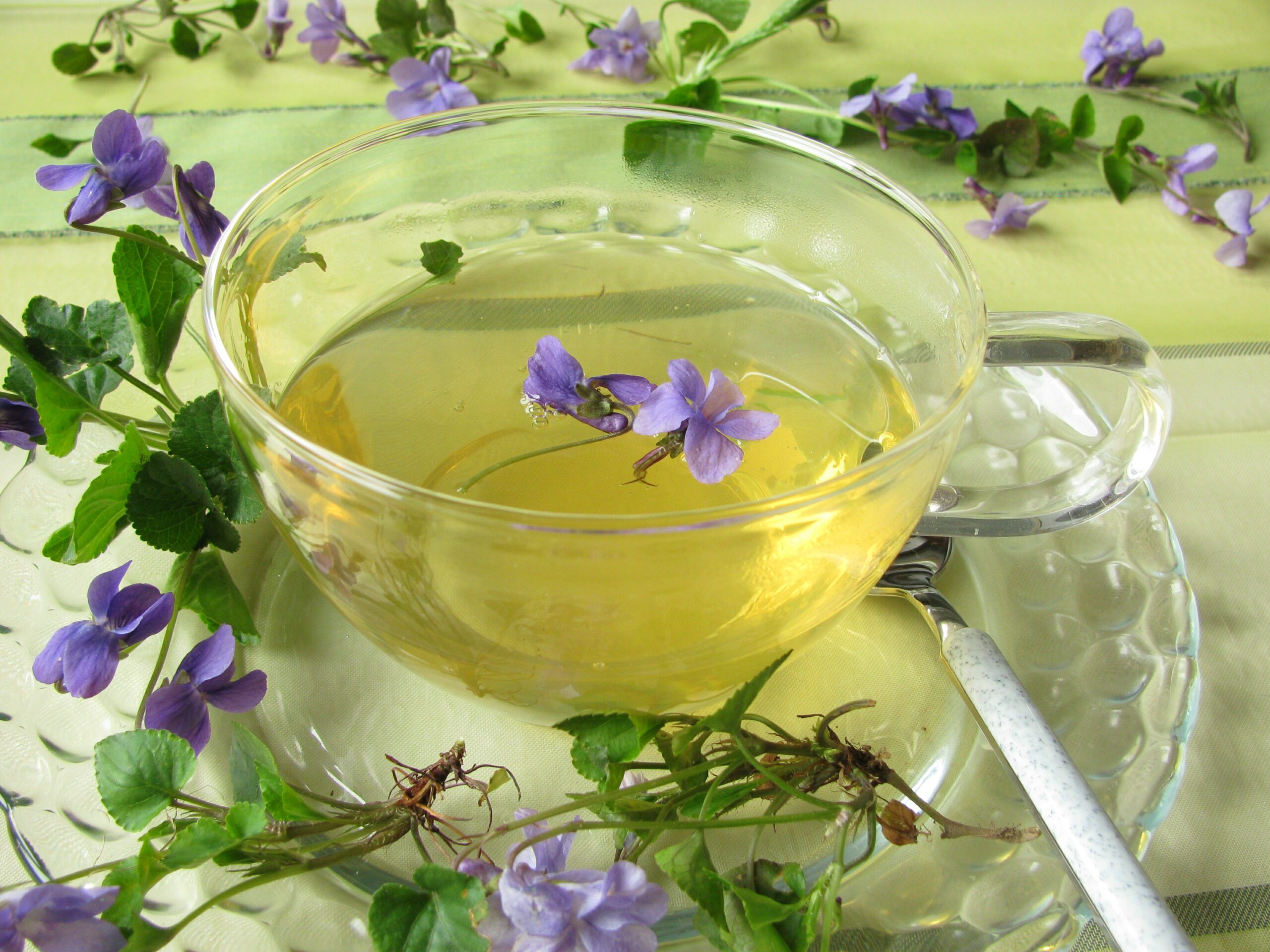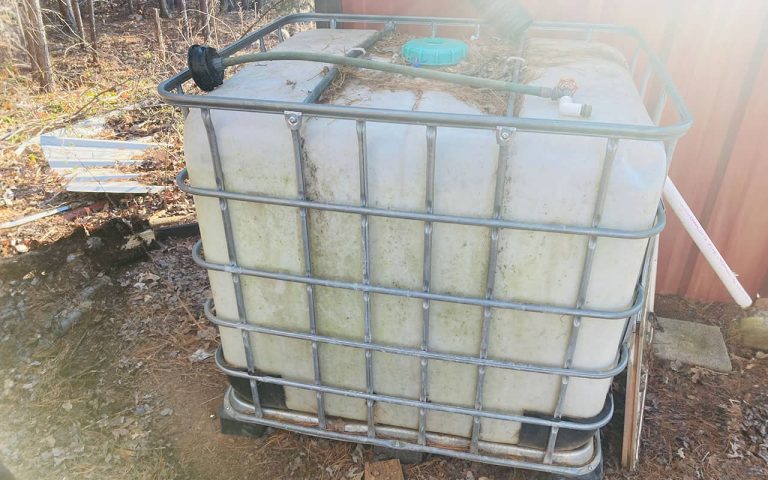Some of the links in this post may contain affiliate links for your convenience. As an Amazon Associate, I may earn a small commission from qualifying purchases without any increase in price to you.
Wild violets make a beautiful and tasty tea with surprising medicinal benefits. Families wanting to be less reliant on big pharma can learn how to to brew a delicious and potentially healthy violet tea. Follow these simple steeping instructions to enjoy the benefits of wild violet.

Brewing wild violet tea is just the beginning! Wild violets are just one small part of natural medicine. Violet leaves and flowers have been used for centuries to soothe coughs, reduce inflammation, and even improve skin health. Natural medicines were one of the go-tos during the Great Depression, too. But we’re getting ahead of ourselves. Let’s start with tea!
Wild Violet Tea Recipe
This recipe uses dried wild violets and is super simple. You may also forage them from a pesticide-free location if you know how to distinguish them from their dangerous look-alikes.
Ingredients
Instructions
Step 1
Add 6- 8 ounces boiling water to dried leaves and flowers.
Step 2
Steep for five minutes.
Step 3
Strain out the flowers and leaves.
Step 4
Drink as is or sweeten to taste. I like honey in my teas and always have some on hand. Note: Honey will alter the color.
How to Make Wild Violet Tea
With its anti-inflammatory and immune system-boosting properties, it makes sense to keep on hand the supplies needed to make this medicinal concoction!

Wild Violet Tea
Enjoy the restorative effects of this refreshing tea made from a beautiful and edible weed or use it to make other products like lemonade or a delicate jelly.
-
6-8 oz hot water
-
mug
-
strainer
- 2 tsp dried violet leaves
- 1 tsp dried violet flowers
-
Add boiling water to dried leaves and dried flowers.
-
Steep for five minutes.
-
Strain out the flowers and leaves.
-
Drink as is or sweeten to taste.
Alternatively, 2 teaspoons of fresh flowers can be used in place of the dried leaves and flowers.
Options for Straining
To strain the leaves and flower there are a number of options:
FAQ
Absolutely not. African violets, which are common houseplants, are not suitable for tea. Stick to wild violets and make sure you can confidently identify them using a field guide or online resource.
It can vary by person but most describe violet tea as having a subtle, floral flavor. Some describe it as earthy with hints of sweet or grassy.
Expert Tips
- For added health benefits and to sweeten the tea, a bit of honey can be added.
- Two teaspoons of fresh flowers can be used in place of the dried leaves and flowers.
- If foraging, look for violets in early spring when they’re freshest. Be certain you correctly identify the plant.
- Don’t walk away and forget about the tea while it’s steeping. It can get bitter. That’s no fun to drink.
- If you like lemon in your tea, the color will change depending on how much you add. It’s a fun experiment, just don’t add so much that you ruin the tea.
- To protect them and maximize shelf life, store dried violets in an airtight container in a cool, dark place for up to a year.
- If you homeschool, use the tea as a science exploration and history lesson. Violets are a pretty good pH indicator were used before more modern litmus papers.
Related Wild Violet and Foraging Content

Final Thoughts
So there you have it! With a simple brewing process and a little exploration, you’ve got a delightful cup of violet tea for the whole family. True the kids will probably have more fun playing around with the color, but regardless, it’s a fun way to connect with nature, enjoy a unique flavor, and create a lasting memory together. Let me know in the comments if you enjoy this wild violet tea recipe!
“This is for information purposes only and is not intended to diagnose, treat, or prescribe for any disease. Consult your personal medical professional.”




















